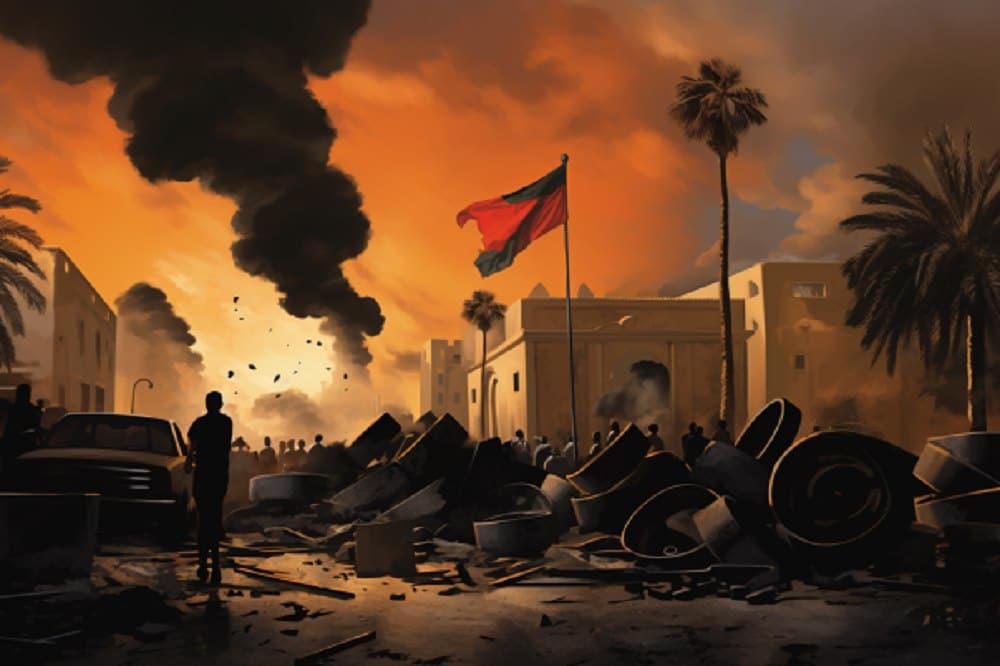Israel-Libya Secret Meeting
A recently leaked meeting between Israel and Libya has ignited widespread protests and diplomatic tensions. Demonstrators took to the streets of Tripoli to voice their anger against the meeting, which had been held secretly in Italy between foreign affairs ministers of Libya and Israel.
This event would have repercussions on multiple fronts, notably political upheaval and international relations.
Internal Turmoil And Political Fallout
Some observers opined that the Israeli foreign ministry’s press statement announcing the “historic” meeting attracted disappointment from the United States. The event’s timing and a possible fallout may strain diplomatic relations between the two nations.
Traditionally, Libya has been a vocal supporter of Palestinian rights and has had no formal ties with Israel. Given this historical stance, the public revelation of the meeting has caused outrage among Libyan citizens.
The protestors burned tires, signifying their displeasure at their government’s perceived betrayal. Based on the events after the meeting, Najla Mangoush, the Libyan foreign minister, was relieved of her duties and has reportedly fled the country.
Mangoush, a native of Wales, later revealed that the Libyan prime minister had prior knowledge of the meeting. However, he feigned ignorance once the news became public. This internal turmoil exposed the discord within the Libyan government.
Analysts also criticized the actions of Israel’s foreign minister, Eli Cohen. His handling of the situation was deemed “amateurish and unprofessional.” He attributed the chaos to “political opponents,” indicating that external forces were at play in the controversy.
The Israeli opposition leader, Yair Lapid, questioned the credibility of Israel’s foreign relations in light of the leak. He highlighted the international community’s concerns about Israel’s ability to maintain discretion in its diplomatic endeavors.
He added that trust issues now hover over the nation’s interactions with its counterparts. Reports suggest that the White House had prior knowledge of the meeting and encouraged Libya’s participation.
However, this encouragement relied on the understanding that the meeting would remain confidential. The breach of this understanding led to questions about the transparency of diplomatic interactions.
Doubts Over Diplomatic Deals
The aftermath of the disclosed meeting has cast doubt on the feasibility of further diplomatic deals. The public revelation of this meeting has raised concerns about potential backlash from Muslim populations, as witnessed in Libya.
Israel’s recent diplomatic agreements with Arab nations, including the UAE, Sudan, Bahrain, and Morocco, have been significant. The desire for normalization with Saudi Arabia has driven negotiations facilitated by the United States.
However, the fallout from the Libyan incident threatens to complicate ongoing negotiations and potentially hinder future agreements. The controversy has tarnished Eli Cohen’s reputation among his Arab colleagues.
Also, the decision to disclose the Libya meeting could have long-lasting implications on his credibility. Trust-building in future negotiations might be an uphill battle as counterparts remain wary of potential leaks and the consequent risks.
As the aftermath unfolds, the incident serves as a reminder of the delicate nature of diplomacy and the importance of discretion in international interactions.

